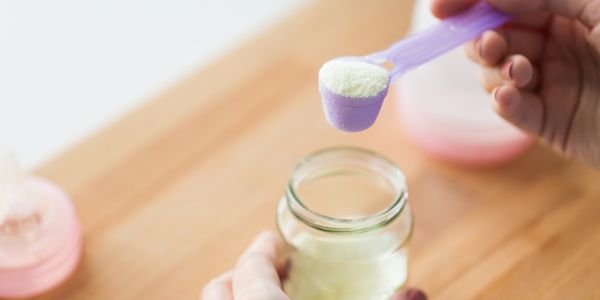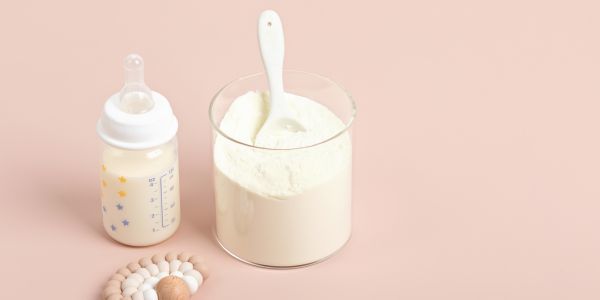

Inflation is hitting infant formula prices, leading to some parents resorting to desperate - and unsafe - measures.
Experts are saying that whilst many vulnerable/lower income parents are entitled to Healthy Start Vouchers to buy nutritious food and infant formula, the £8.50 a week to buy nutritious food, this is not enough as the value of the vouchers has not risen in line with inflation. Charities are calling upon the government to increase these vouchers to at least £10 a week.
Due to the rising costs of formula, the watering down of formula powder, and weaning onto solids early against NHS guidance (solids are actually less nutritionally dense and lower in important fats than infant formula), has increased. This means that babies from vulnerable families are at higher risk of malnutrition and health issues with the soaring cost of infant formula leading to unsafe feeding practices, charities have warned.
According to data analysis by the British Pregnancy Advisory Service (BPAS), the price of infant formula has increased hugely over the past year - the cheapest brand has gone up by at least 22%! So, it's understandable that lower income families with formula fed babies are struggling, and with breastfeeding support funding being continually slashed, many parents are being left in a literal 'limbo' whereby they're being let down on both sides; unsupported in struggling to breastfeed, and unsupported in struggling to afford formula.

BPAS chief executive Clare Murphy told the press:
"We know that families experiencing food poverty resort to unsafe feeding methods, such as stretching out time between feeds and watering down formula. The government cannot stand by as babies are placed at risk of malnutrition and serious illness due to the cost of living crisis and the soaring price of infant formula.
The government must increase the value of Healthy Start vouchers to protect the health of the youngest and most vulnerable members of our society."
The largest food bank networks currently have rules in place that stop their food banks from redistributing formula that has been donated; there are many reasons for this, risk of tampering being one, but another is down to the UNICEF guidelines on donating formula and these have been backed by the UK government, meaning that food banks are reluctant to give out formula donations at the risk of coming under fire for it. UNICEF state that; "while on the surface" food banks "seem like a practical solution", handing out formula "can be a risky practice that can inadvertently cause harm".
They also added that food bank staff and volunteers cannot support parents “to feed their babies as safely as possible” in the same manner that trained professionals such as health visitors, doctors and midwives can.
Michelle Herd, co-founder of baby bank AberNecessities, told the press;
"We have seen an enormous increase in referrals for parents struggling to feed their little ones due to the soaring prices of formula milk. We need to make sure that infant formula is available to families who need it, whether that be through food banks and baby banks.
In addition, the government must investigate rising costs, particularly for vital products such as infant formula. Our fear is that without access to this basic essential, we will see babies in hospital, malnourished."
How is formula safely prepared?
You can find the NHS formula preparation guidelines here. It's important to follow them as they're evidence-based and the safest way to keep your baby from becoming poorly. If you are struggling to make a tub of formula stretch out, please read the next section.
- Never water down formula - not even during the summer or for constipation.
- Always prepare formula using freshly boiled water - not when the water has cooled, as freshly boiled kills bacteria within the powder, which is not sterile.
- Always sterilise formula bottles until around 12 months of age.
- Formula/breastmilk is the main source of nutrients for babies until around 12 months.
- Stage 2 formula may seem cheaper but it is not designed to meet the nutritional needs of babies younger than 6 months.
- Cows milk shouldn't be given as a drink before 12 months as it's not broken down enough for young digestive systems and isn't as fortified as infant formula.
I'm struggling to afford formula, what should I do?
Please contact your local Health Visitor team for advice as they can signpost you to any local centres that may be able to help. Your GP or midwife may also be able to help. Feed UK is a great infant feeding support charity that can signpost you towards food and baby banks for additional help.
Other articles...


.png)







